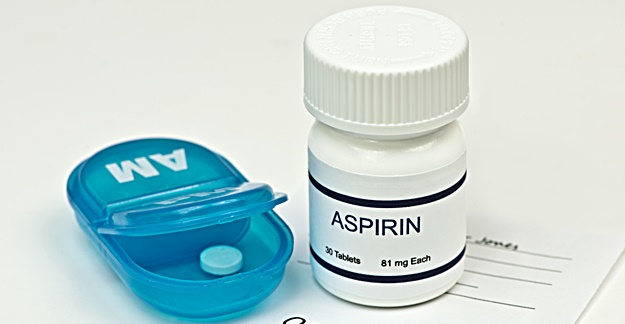If you are healthy, taking a daily low-dose aspirin to prevent cardiovascular events may not only not help you, it can potentially be harmful.
Researchers enrolled more than 19,000 older people in a double-blind, placebo-controlled trial. The participants did not have heart problems, dementia or any kind of physical disability. Half were given 100 mg of aspirin daily, while the other half received a placebo. After about five years, there was no difference in “disability-free” survival between the two groups, researchers reported in the New England Journal of Medicine.
A related analysisfound that there was a significantly increased risk of bleeding – primarily in the gastrointestinal tract and brain – in those that were taking aspirin. Bleeding that required a transfusion or hospitalization occurred in 3.8% of the aspirin group compared to 2.7% of the placebo group.
Another analysisfound that those taking aspirin had a higher risk of death compared to those on placebo, though researchers said most of the deaths were a result of cancer.
It is important to note that the study was done in healthy individuals. The US Preventive Services Task Force recommends low-dose aspirin use to prevent cardiovascular disease in those that have health conditions or factors that put them at increased risk for it. Doctors often prescribe “baby” aspirin to those who have suffered a heart attack or stroke as studies have shown it can reduce the risk of having another one.






